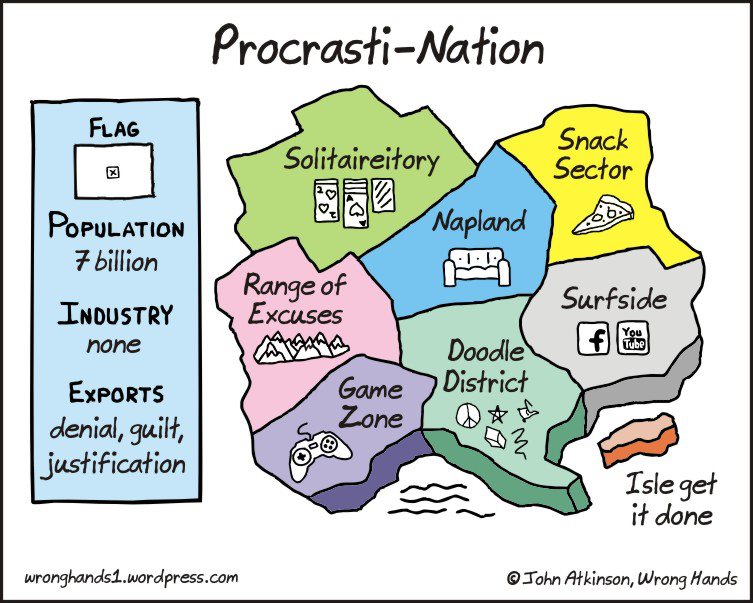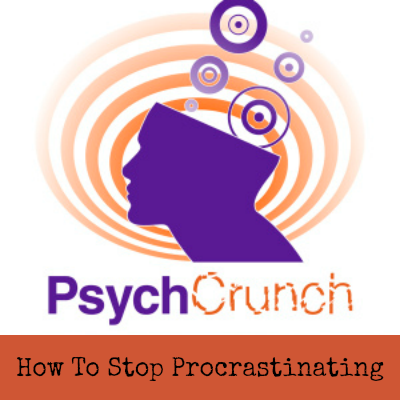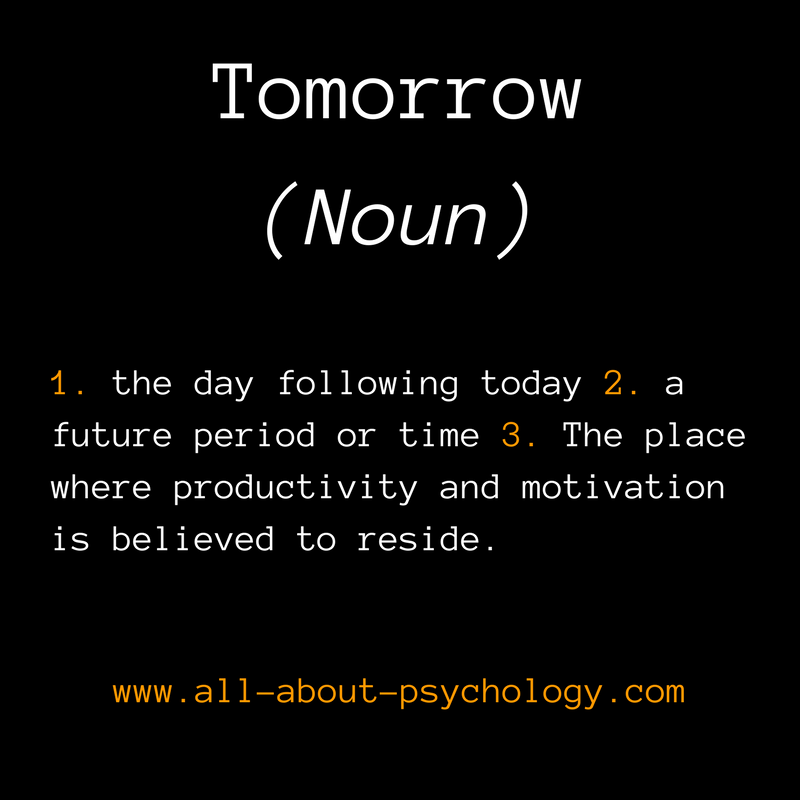Procrastination
David Webb (Owner, writer & host of All-About-Psychology.Com)
Ah, procrastination, that pesky thief of time we all know so well. According to Professor Timothy A. Pychyl, a leading expert in the field, volitional action, (more commonly known as procrastination) is a "voluntary and quite deliberate turning away from an intended action even when we know we could act on our intention right now," the puzzling aspect of which Professor Pychyl notes; is that the only thing preventing us from acting in a timely manner is our own reluctance to act.
Before reading on, see how many times you recognize yourself in the following video.
(Fab Cartoon images via 20px.com)
Interest in this curious act of self-sabotaging behavior is nothing new. Check out this brilliant poem on procrastination by Charles Swain which was published in The London journal of literature, science, and art in 1853.
Alas! how neglectful,
Unfeeling we tread!
How careless, forgetful,
Of benefits fled!
When the hopes we have tasted
Are lost, we deplore,
And sigh for time wasted
We ne'er may see more!
Resolving—repenting—
Still day after day,
Whilst angels lamenting
Drop tears on our way.
Could man read Time's pages,
Record every scene!
He'd find, through Life's stages
How oft we had been
Too full of inventions
To satisfy thought—
Too rife with intentions
That dwindled to nought!
Still taxing tomorrow,
Still wasting today—
Whilst angels in sorrow
Dropped tears on his way.
The Science of Procrastination
The following information and resources will help you understand why so many of us procrastinate and what we can do about it, starting with a brilliant presentation about academic procrastination and strategies for change.
A must visit website for anybody interested in learning more about the science of procrastination. For the past 20 years, the Procrastination Research Group's (PRG) exclusive focus has been on researching the breakdown in volitional action i.e. procrastination; seeking to understand why we become our own worst enemy at times with needless, voluntary delay. Although their research and site originates at Carleton University (Ottawa, Canada), it represents a compilation of information and research on procrastination from all over the world. You can visit the PRG website via the following link.
Procrastination Research Group
See following links for a couple of great articles about procrastination.
Psychologists Study Twins To Learn More About The Roots of Procrastination
How Negative Thoughts Relate to Procrastination
CLICK HERE to listen to a very informative podcast from the British Psychological Society’s Research Digest hosted by Christian Jarrett who explores whether psychology can help us avoid procrastinating and get on with the important things we know we should be doing?
Recent Articles
-
Tourettes: Understanding Tourette Syndrome Beyond Stereotypes
Feb 23, 26 06:01 AM
Learn what tourettes really is, why swearing is a myth for most, and how education reduces stigma around Tourette syndrome. -
Psychological Impact of Catastrophic Injury & Recovery
Feb 17, 26 02:26 AM
Explore the psychological impact of catastrophic injury, including trauma, identity shifts, resilience, and long-term mental health recovery. -
Psychology Articles by David Webb
Feb 10, 26 06:31 AM
Discover psychology articles by David Webb, featuring science-based insights into why we think, feel, and behave the way we do.
Please help support this website by visiting the All About Psychology Amazon Store to check out an awesome collection of psychology books, gifts and T-shirts.
Go From Procrastination Back To The Home Page








